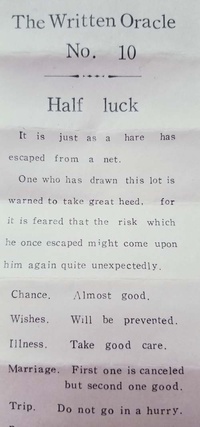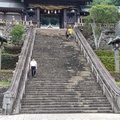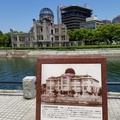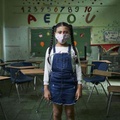When “unconditional loyalty” goes wrong...
Over the years of putting together the pieces of my family’s history, I was eager to find out the circumstances that led to the patterns that still impact my family to this day. Understanding my distant Japanese, Bukharan-Jewish, and Black American history has been nothing less than challenging. While reflecting on the last two centuries of family history, I have managed to find one common denominator: My family members were involved in toxic situations.
I’ve identified ancestors from the last two centuries who’ve suffered from interpersonal challenges with their work partnerships, friends, romantic partners, and spouses. Many socio-cultural norms reinforce “unconditional loyalty” to the family and community, even if they mistreat you or cause your misfortune.
Gaining independence from toxic communities and family situations is relatively new, and more accepted in Western societies than other parts of the world. In fact, migration may be the only tolerable excuse to leave a family or community behind, and it was rare for someone to migrate alone. On the other hand, it is still frowned upon for someone to remove oneself from toxic family relationships.
You might ask: What does this have to do with the Nikkei experience?
This goes back to my process of putting the pieces together. My unwillingness to ignore an ugly truth and embrace a pretty lie has helped me accept that my distant relatives in Japan centuries ago were not saints. They made some dishonorable choices for the sake of obtaining honor from their superiors.
My distant relatives, a clan in Suwa (in modern-day Nagano), were loyal to the Tokugawa Shogunate even before the Battle of Osaka. However, ever since that battle and the atrocities that followed (the pillaging of surrounding villages and attacks on women, children, and the elderly by order of Tokugawa), the clan felt pressured to prove their loyalty at the expense of their integrity. From the 1800s until the clan died out, they justified doing what they were told.
There were also distant relatives, a merchant family in Nagasaki, who were eventually subdued by the very people who worked beside them. From the 1800s until just before the Meiji era, these relatives engaged in business trade with Dutch travelers in Nagasaki for many years. After Commodore Matthew Perry forced the borders to open in Japan, many European merchants roamed freely in Japan.
As a result, cholera caused the illnesses and deaths of over 100,000 Japanese people. Angry and afraid, many Japanese joined together to attack the European merchants. Many Europeans were killed along with any Japanese merchants who worked with them. With the exception of my direct ancestors who were already in America, none of my merchant relatives survived the attacks in Nagasaki.
This history of unconditional loyalty in toxic situations has repeated itself even among my family members in the Black American community. In this case, the conditions of the Black American community are due to psychological and social abuse in America that are more complex issues not covered here. The Black American community declares loyalty to the notion of “Blackness” more than loyalty to other Black people. In other words, even if Black people mistreat you, removing yourself from their mistreatment will make you a “sell-out” and “inconsiderate” of other Black people’s pain.
Realizing this recurring pattern compels me to seek better friendships and relationships for myself. I am more motivated than ever to break old patterns and stay away from toxic relationships. I clearly see that healthy relationships enable mutual support, while this is not possible in unhealthy relationships. In unhealthy relationships, everyone loses eventually.
To vilify those who walk away from toxic situations is toxic in itself. That’s just my position now. Sometimes, when you want your circumstances to change, the change has to start with you. My advice to those at similar crossroads in their own lives is this: If you have to be the change you need in your life, then don’t be afraid to be that change you need to be for yourself.
© 2023 Tuney-Tosheia P. McDaniels






